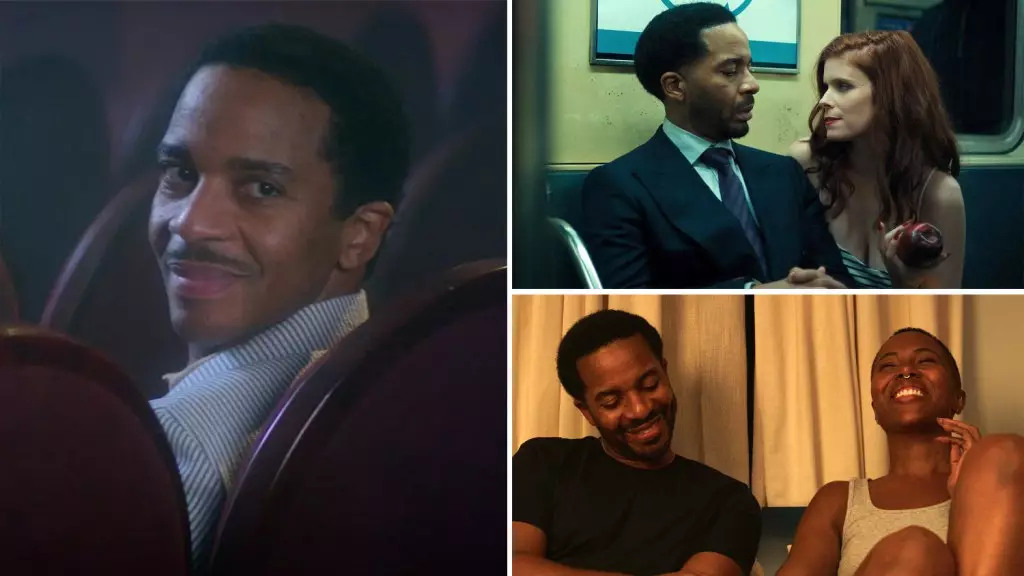André Holland is fast becoming a seminal figure in contemporary cinema, not merely for his impressive talent but for the diversity of projects he is currently undertaking. His roles in films like *The Actor* and *The Last Supper* reveal an artist who is committed to exploring complex themes—ranging from personal identity to spiritual redemption. Unlike many actors who become typecast, Holland is shattering molds, showcasing the multifaceted nature of the human experience. This is particularly poignant in *The Last Supper*, a film steeped in religious themes but told through a modern lens, which adds richness to faith-based storytelling often overshadowed by clichés.
For the audience, films like Holland’s act as incisive mirrors, prompting viewers to reconsider their own identities and beliefs. The nuanced exploration of memory and identity within *The Actor* invites a deeper reflection on the complexities of our existence. As Holland navigates these intricate layers, audiences witness not just a man’s struggle for self-understanding, but also a broader commentary on societal pressures to conform to singular narratives.
A Resurgence of Faith-Based Films: Hope in a Fractured Landscape
With the rise of *The Last Supper*, it is evident that faith-based films are undergoing a renaissance. Such narratives hit a cultural sweet spot, often resonating with the longing for meaning in today’s tumultuous world. While the film’s premise may appear conventional—exploring events surrounding the betrayal of Christ—it aims to redefine how biblical stories are presented, moving beyond pure religiosity to explore human emotions and motivations.
Notably, Chris Tomlin’s involvement as executive producer highlights a trend where musical icons are lending their voices to film projects, suggesting a blending of artistic avenues for the sake of storytelling. This approach fosters a unique relationship between music and film, enriching the viewer’s experience. However, as the box office performance of faith-centric films increasingly grapples with external societal pressures, the question arises: can these films avoid the trap of simplistic narratives while providing genuine inspiration?
The commercial success of productions like *Sound of Freedom* indicates that audiences are hungry for earnest storytelling within this genre. But this renaissance must be handled carefully; the influx of faith-based content could run the risk of diluting powerful messages if not executed with authenticity and depth.
Tran Thanh: The Vietnamese Cinematic Explosion
Aside from Holland, another figure worth noting is Tran Thanh, whose films are breaking box office records across Vietnam and into international markets. His ability to weave universal themes of love and identity within culturally specific narratives is nothing short of revolutionary. The extensive reach of his latest film, *The 4 Rascals*, showcases not just the appeal of Vietnamese cinema but highlights a global audience’s appetite for diverse storytelling.
What makes Thanh’s work particularly striking is his focus on relatable themes that transcend cultural barriers. The existence of familial relations and the messiness of romantic entanglements are universally appealing subjects. Yet, the challenge remains on whether Thanh can maintain this level of success, especially in light of the varying expectations from different audiences. Will future projects continue to carry the weight of cultural representation, or will they dilute into sheer commercialism?
Documentary and Political Discourse: A Timely Examination of Antisemitism
In an era characterized by rampant polarization, documentaries like *October 8* dig deep into pressing societal issues. It explores the explosion of antisemitism following the tragic Hamas attack on Israel, serving as a painful reminder of the fragility of peace and mutual understanding. With contributions from high-profile figures, including actress Debra Messing, this film challenges viewers to confront uncomfortable truths about our cultural landscape.
While many might dismiss documentaries as mere documentaries, the weight they carry in shaping public discourse should not be underestimated. The film makes a bold statement that challenges audiences to reflect critically on their perspectives, especially in a time when misinformation often shapes narratives around such sensitive topics. This prompts an essential dialogue about responsibility—both from filmmakers and audiences—in how we consume information and engage with stories that reflect real-world injustices.
The interplay between cinema, faith, and cultural reflection remains vital, particularly in politically charged climates. The alignment of these films, especially as they tackle sensitive themes, is a call for increased empathy and understanding.
In a world driven by divisive narratives, the arts—through the powerful lens of films like those featuring André Holland and Tran Thanh—become instrumental in fostering dialogue, asking tough questions, and ultimately painting a more informed picture of what it means to be human in our modern age.

